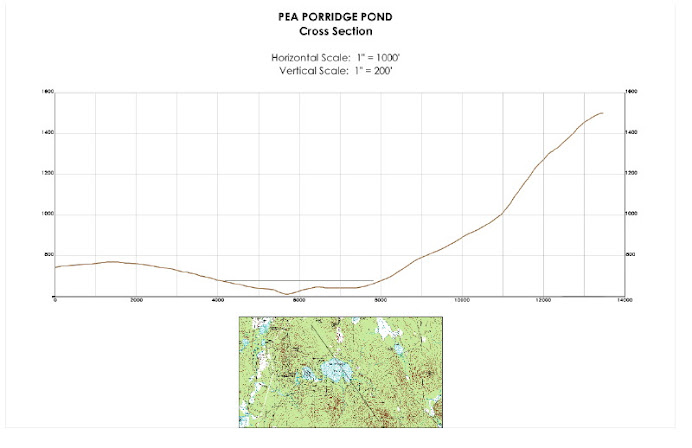After a long hiatus generated by the collapse of the economy during the past 6-9 months, the project staff is ready again to begin updating everyone on our progress on the project. In the next few weeks and months, we'll be adding posts that describe our results to date and the field and laboratory work that will likely be undertaken over the winter months. We apologize for this long hiatus; making making a living took time away from the project in various unexpected ways.
The first bit of news is that Brian gave a review presentation about the project on August 2nd to about 60 people who attended the program as a part of the Town of Madison's Old Home Week activities. Most of the folks there had not heard about the project before, and so there were lots of great questions and discussions about how citizen science projects like ours can get started up, about local/regional climate change, and about the geologic and natural histories of Big PPP. Of particular interest was the possibility that folks on Silver Lake may be interested in a project like ours. We'll keep you posted on any such developments.
Meantime and for now, that's it - back soon with more "good stuff".
The Madison-Hills Paleoecology Project ("MPEP")
Introduction
Scientific Basis of the MPEP
Lake-bottom sediments represent the most continuously detailed records of post-glacial (Pleistocene to Holocene) climate and environmental change available, and such records provide the best long term context for the dramatic physical and biological/ecological changes that have occurred during what has become to be known as the "Anthropocene" period (time since the beginning of extensive human habitation).
Who's Involved
The scientific staff of MPEP includes the following individuals, all of whom are donating their professional expertise to the project:
P. Thompson Davis, Ph.D., Dept. of Natural & Applied Sciences, Bentley College.
Brian Fowler, Quaternary Scientist, Project Director.
Lee Pollock, Ph.D., Dept. of Biology, Drew University.
Lisa Doner, Ph.D., Center for the Environmental, Plymouth State University
Monday, August 24, 2009
Subscribe to:
Post Comments (Atom)



No comments:
Post a Comment